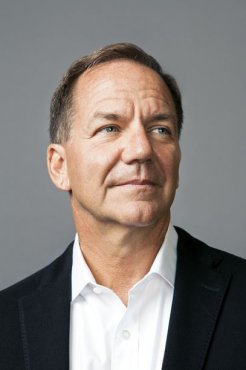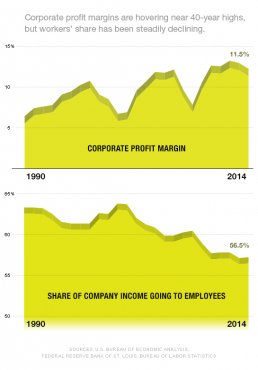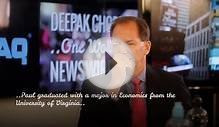
 On the tony Belle Haven peninsula in Greenwich, Conn., overlooking Long Island Sound, sits a massive neoclassical household that seems like it might have-been transplanted through the University of Virginia university, the alma mater of the property’s owner: hedge fund billionaire Paul Tudor Jones II. A mansion on Greenwich’s gold coastline may not be the most obvious destination to go searching for answers to America’s growing wide range gap. Yet it was truth be told there couple of years ago that Jones started hatching a strategy to shrink the widening chasm between wealthy and poor.
On the tony Belle Haven peninsula in Greenwich, Conn., overlooking Long Island Sound, sits a massive neoclassical household that seems like it might have-been transplanted through the University of Virginia university, the alma mater of the property’s owner: hedge fund billionaire Paul Tudor Jones II. A mansion on Greenwich’s gold coastline may not be the most obvious destination to go searching for answers to America’s growing wide range gap. Yet it was truth be told there couple of years ago that Jones started hatching a strategy to shrink the widening chasm between wealthy and poor.
Jones, 60, who's approximately net well worth of $4.5 billion, ended up being having coffee one day with Deepak Chopra, the holistic medication supporter and bestselling writer, who knows the Wall Street titan through Jones’s wife, Sonia, an Australian by beginning whom works a yoga and health company. Chopra had grown profoundly concerned about earnings inequality. “I experienced already been likely to Occupy Wall Street group meetings and saw the rage but didn’t see the solutions, ” he says.
During a spirited discussion with Jones about America’s disappearing middle-class, Chopra, whom shows a course at Columbia Business class called only Capital & Cause-Driven advertising, brought up an idea one of is own students had suggested in course: produce a currency markets list that would drive capital to businesses that treated their workers and communities well. The idea of a market-driven approach appealed to Jones, the onetime cotton fiber trader whom founded Tudor Investment Corp. in 1980, became popular by predicting the crash of ’87, now handles $13.8 billion. “I thought, Wouldn’t this be a good thing to do?” states Jones.
Jones performed some quick research—and was both surprised and more than a little embarrassed to discover that taking a values-based approach to the stock exchange was scarcely an authentic idea. So-called socially responsible investing, he soon discovered, ended up being a .6 trillion business which had existed for decades. Yet it had never popped upon the radar of hedge investment titan—or, Jones determined, been successful in placing much stress on Fortune 500 companies to share a lot more of their particular wide range with workers. That, he quips, is “a unfortunate commentary both on area while the area between my ears.”
 Then Jones had a different idea: competition. Why don't you rank America’s top 1, 000 organizations based not on what Wall Street values—profits—but rather about what Main Street wishes? If the list caught on, he reasoned, organizations might someday vie becoming rated more than their competitors. Also to do so they'd have to pay employees more fairly, make services and products much more sustainably, and provide even more back to the city.
Then Jones had a different idea: competition. Why don't you rank America’s top 1, 000 organizations based not on what Wall Street values—profits—but rather about what Main Street wishes? If the list caught on, he reasoned, organizations might someday vie becoming rated more than their competitors. Also to do so they'd have to pay employees more fairly, make services and products much more sustainably, and provide even more back to the city.
To put their plan into activity, Jones early in the day in 2010 created a nonprofit known as Just Capital—inspired by the title of Chopra’s Columbia course. The goal should investigate what makes folks like or dislike corporations and then to create a yearly list—which will debut when you look at the autumn of 2016—tentatively known as the simply 1000. “We wish provide the United states general public a voice where it's never ever had a voice, ” says Jones. “It’s likely to be crystal clear and impartial and without prejudice. Plus it’s planning drive business behavior.”
Skeptics might question what type of huge difference an easy record could make. But Jones thinks that using public-opinion can prove powerful—and that switching the behavior of huge companies may have a cascading effect. “As soon as we discuss moving the needle on business The united states, we’re dealing with a scale that’s unrivaled elsewhere regarding the world, ” he states. “I really think it has the possibility is the absolute most impactful nonprofit that I’ve previously been involved in.” (to learn about 51 organizations already having a positive impact, see our Change the World number.)
At first Jones will myself supply all of the money for Capital, that he estimates need about $5 million to $6 million per year to operate. But he hopes the nonprofit will eventually be self-sustaining by, for-instance, attempting to sell businesses resources to evaluate their ratings on the simply 1000 number and through certification deals. (Think we’re a just 1000 organization! decals.) In order to prevent disputes interesting, only Capital will accept no business contributions.
Jones features put together a diverse collection of people for Just board, which besides Deepak Chopra includes Huffington Post founder Arianna Huffington; Ray Chambers, the former head associated with personal equity firm Wesray Capital; previous Shell manager John Hofmeister; Blake Mycoskie, the creator of Toms footwear, which provides away one pair to establishing nations per so it offers; and Jochen Zeitz, the previous CEO of Puma just who produced PumaVision, a moral framework defined by being reasonable, truthful, good, and innovative. What do obtained in accordance? “They all have actually big hearts, ” claims Jones, half-jokingly. He says he is earnestly recruiting even more previous CEOs to ensure corporate America’s point of view is represented.
But different views won’t alter his adamant belief the system features gotten regarding stability. “There’s such an emphasis on making money that we’ve truly taken the humanity from business, ” he states. “And an element of the explanation is that we’re devoid of the best price debate in both community plus in our corporate boardrooms.”
YOU MIGHT ALSO LIKE












